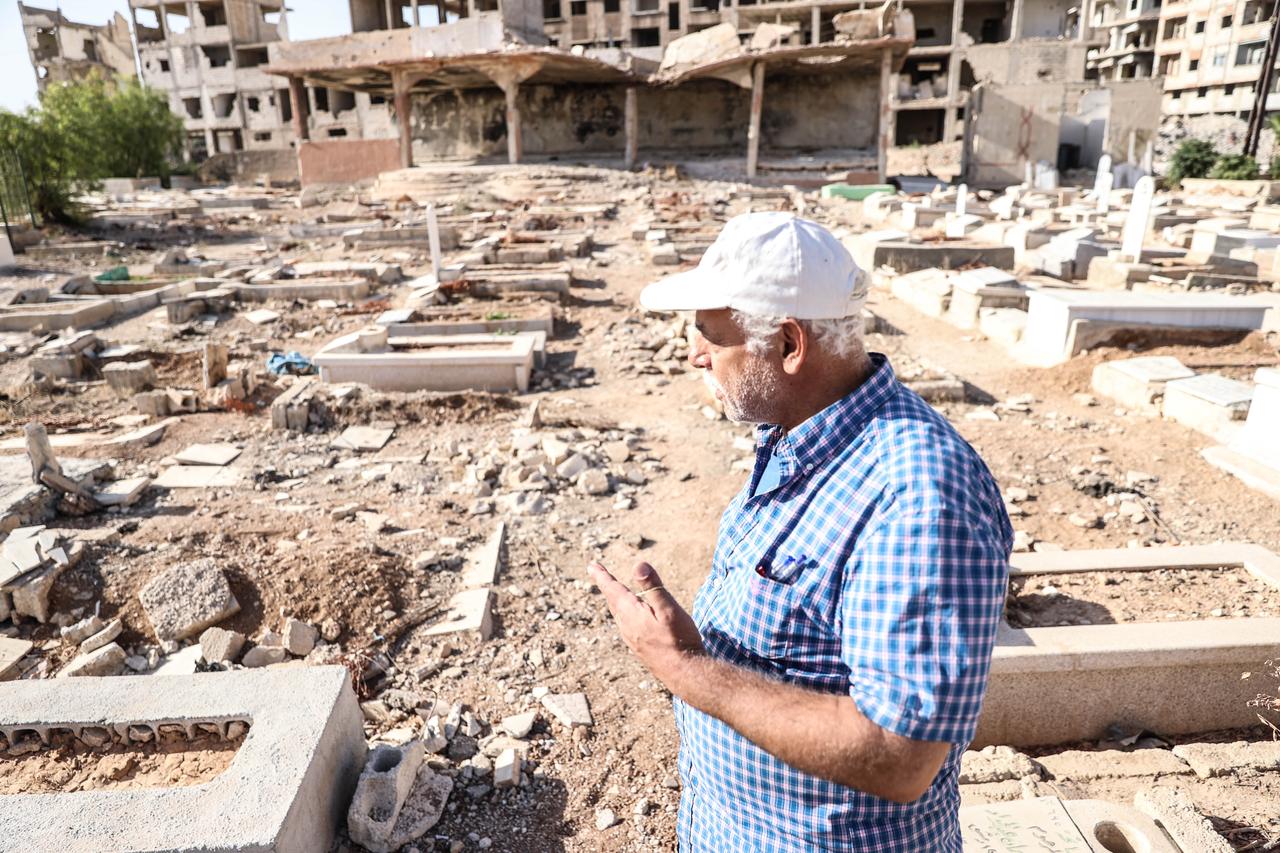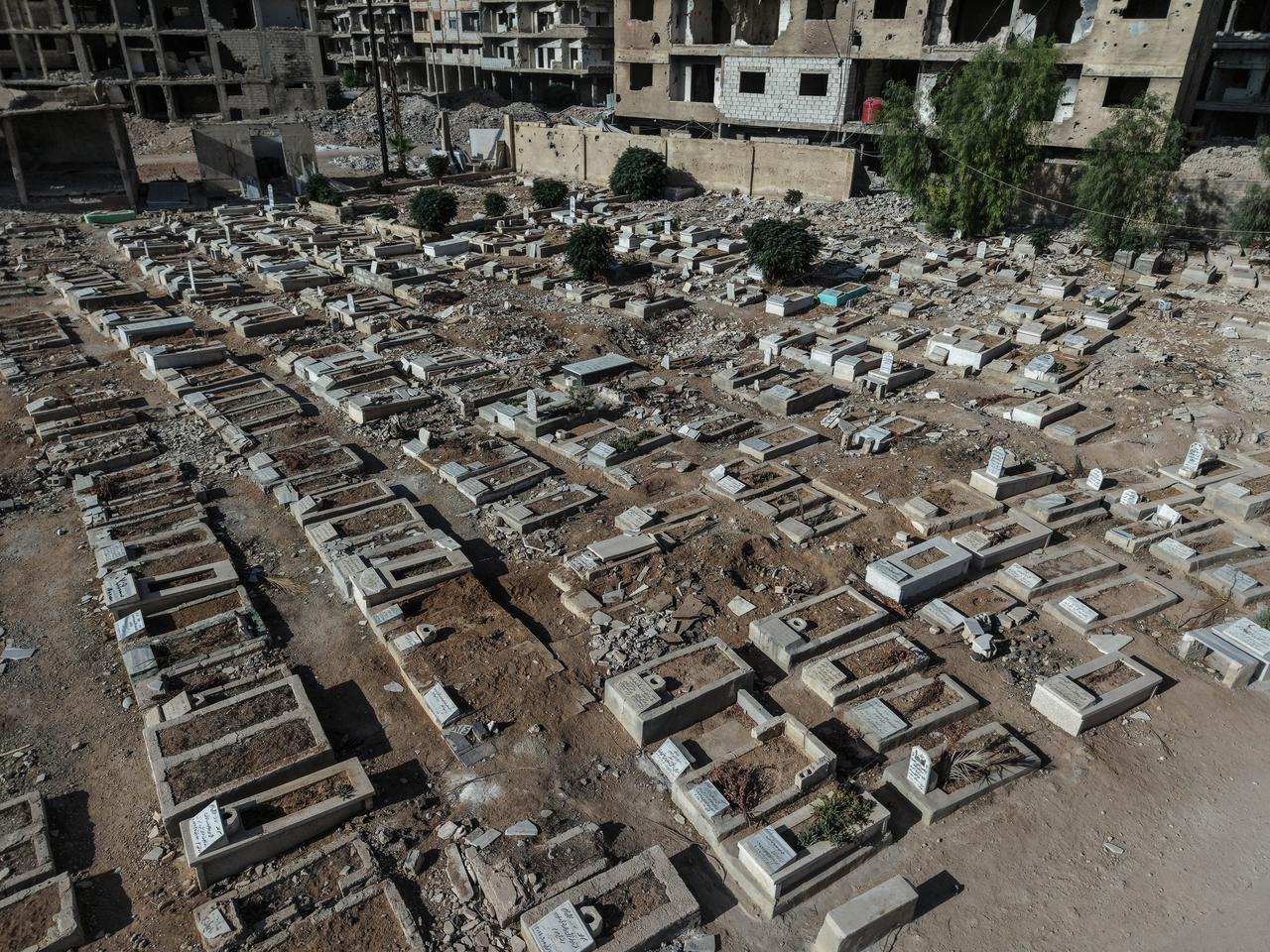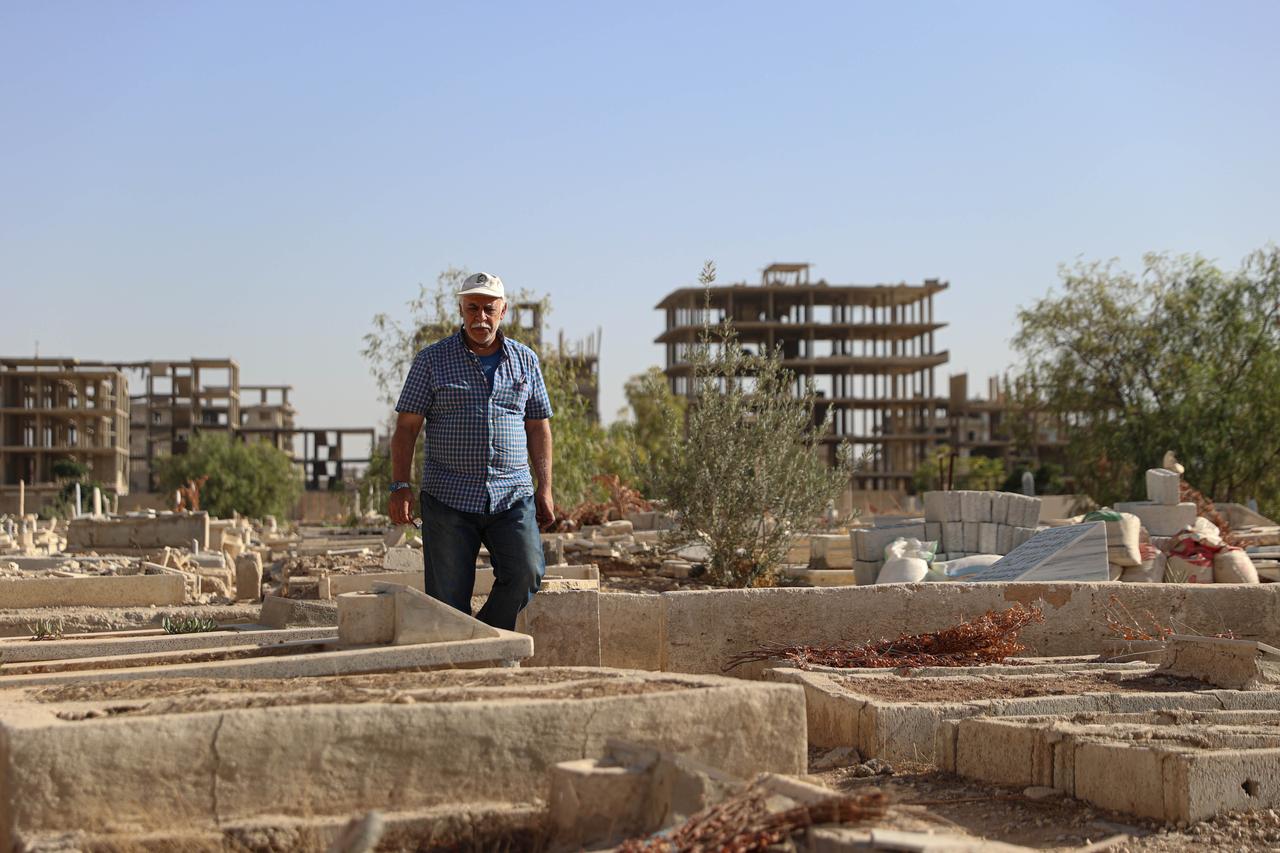
Residents of the Yarmouk Camp in Damascus are searching for the graves of their relatives in the Yarmouk Cemetery, which was left in ruins by the deposed Bashar al-Assad regime and its supporters.
The old Martyrs’ Cemetery of Yarmouk Camp once held the bodies of Israeli soldiers killed in the 1982 Battle of Sultan Yacoub in Lebanon’s Bekaa Valley, along with Palestinians who died during the 1982 Beirut siege and those who starved during the regime’s 2013 siege of the camp.
After besieging the camp in 2013, regime forces carried out searches in the cemetery to locate the remains of Israeli soldiers. During these operations, gravestones were broken and their locations altered.
Nael Hamid Abu Yaser, the official responsible for the camp cemeteries, told Anadolu that a new cemetery has since been established after the destruction. “This destruction was not random,” he said. “The camp held symbolic importance as the capital of the diaspora. The graves were systematically erased to eliminate this role and to conceal traces of the Israeli soldiers.”
Abu Yaser added that Russian forces were present in the area during the regime period. “The regime and its supporters dug up graves until they found the graves of the Israeli soldiers and handed them over to the Israeli government. After the bodies were removed, the grave markers were completely eliminated. As a result, it became impossible to know who was buried where,” he said.

Families are now searching for graves using old photographs, though most have found no answers. “We are working to restore the records we can access and officially reinstall the gravestones,” Abu Yaser said.
He noted a special section known as the “Section of the Starved,” where 140 people who died during the siege are buried. “At that time, regime commander Issam Zahreddine did not allow even a grain of rice inside. Because of this, more than 140 people died of hunger,” he said.
Another section contains the graves of 82 fighters killed during the Beirut siege. “Some are known by name, while others are unknown. Palestinians, Arabs and Syrians were buried side by side,” he added.

Established in 1957 south of Damascus for Palestinian refugees, Yarmouk became home to more than 100,000 people and served as a symbolic capital for the Palestinian diaspora.
Since the Syrian civil war began in 2012, the camp has witnessed heavy fighting. Cemeteries, hospitals, schools and homes were severely damaged, and the camp remains largely destroyed today.